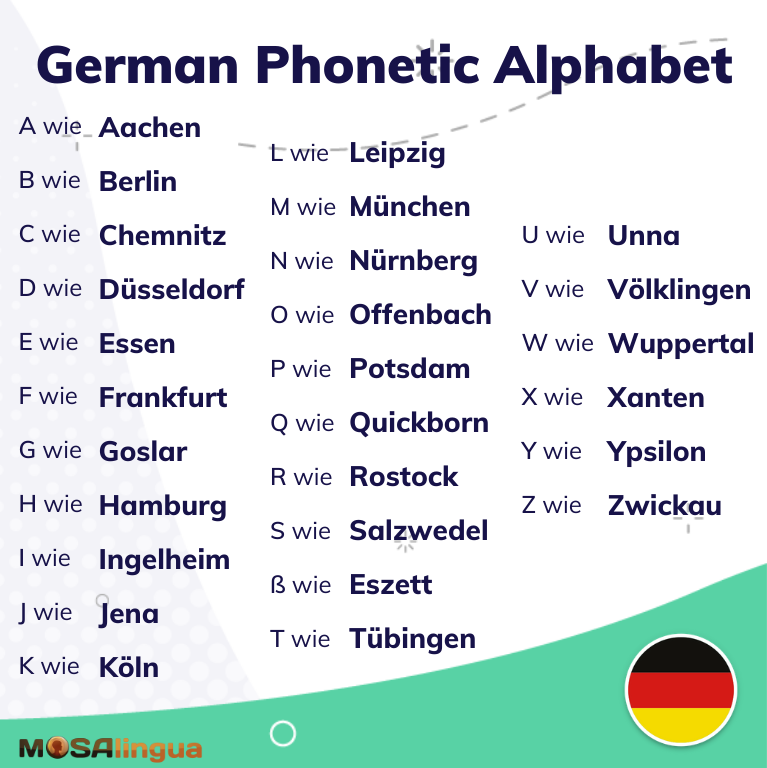
Practise the German vowel combination ei, for exampleĭas Ei, egg, which rhymes with the English 'lie'. die Meile, mile, or die Kasette, casette. The German final e is never silent, but very short, e.g. The German i sounds like the 'ee' in the English word 'feet'. The e sounds like the vowel in English 'egg', keeping your lips widely spread. die Ironie, irony, can be tricky and are sometimes easily mixed up by English speakers. You'll only ever see it in lower case as words never start with a ß, and it's not used in Swiss German, which opts for double s instead. in beißen, to bite, orĭer Gruß, greeting. A little German Extrawurst, special treatment, has been added in the form of four more letters called die Umlaute ä, ö, ü and the ß, sharp s, which is pronounced as double s, eg.

The modern German alphabet's based on the Latin alphabet, consisting of 26 base letters. What's significant about the German alphabet?


 0 kommentar(er)
0 kommentar(er)
